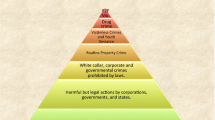Abstract
Exemption claims remain a tangled and divisive moral and legal issue both in academia and in the public sphere. In his book Exemptions: Necessary, Justified, or Misguided?, the constitutional scholar Kent Greenawalt zeros in on the vexed question of whether exemptions from rules of general applicability based on the conscientious convictions of individuals or groups are sometimes justified or prudent by discussing a wide range of cases drawn from the American jurisprudence. Although he does not engage in a significant way with political and legal philosophy and comparative law, his contextualist and pragmatic approach is a powerful antidote against oversimplification and dogmatism with regard to exemption claims. Unsurprisingly, Greenawalt’s approach comes at times dangerously close to casuistry, and some of his analyses and normative recommendations would benefit from a firmer footing in moral principles and rational argumentation. In this review, I flesh out some of the strengths and limits of Greenawalt’s valuable book.
Similar content being viewed by others
Notes
Kent Greenawald, Exemptions: Necessary, Justified, or Misguided? (Cambridge: Harvard University Press, 2016).
See: Martha Nussbaum, Liberty of Conscience: In Defense of America's Tradition of Religious Equality (New York: Basic Books, 2010); Jocelyn Maclure and Charles Taylor, Secularism and Freedom of Conscience (trans. Jane Marie Todd) (Cambridge and London: Harvard University Press, 2011); Michael J. Perry, "On the Constitutionality and Political Morality of Granting Conscience-Protecting Exemptions Only to Religious Believers", in K. Vallier & M. Weber (ed.), Religious Exemptions (Oxford University Press, 2018), pp. 21–36; and Cécile Laborde, Liberalism’s Religion (Cambridge: Harvard University Press, 2017).
See: Brian Barry, Culture and Equality: An Egalitarian Critique of Multiculturalism (Cambridge: Harvard University Press, 2002); Brian Leiter, Why Tolerate Religion (Princeton: Princeton University Press, 2012); Peter Balint, Respecting Toleration: Traditional Liberalism and Contemporary Diversity (New York: Oxford University Press, 2017); and Simon Cabulea May, “Exemptions for Conscience”, in C. Laborde and A. Bardon (ed.), Religion in Liberal Political Philosophy (New York: Oxford University Press, 2017, pp. 191–203).
See: Christian Fiala and Joyce H. Arthur, “There is no defence for ‘Conscientious objection’ in reproductive health care”, European Journal of Obstetrics & Gynecology and Reproductive Biology 216 (2017): pp. 254–258; Julian Savulescu and Udo Schuklenk, “Doctors have no right to refuse medical assistance in dying, abortion or contraception”, Bioethics 31(3) (2017): pp. 162–170; and Ronit Y. Stahl and Ezekiel J. Emanuel, “Not Conscripts—Conscientious Objection in Health Care”, New England Journal of Medicine 376(14) (2017): pp. 1380–1385. For a rebuttal, see: Jocelyn Maclure and Isabelle Dumont, “Selling conscience short: A response to Schuklenk and Smalling on conscientious objections by medical professionals”, Journal of Medical Ethics 43 (2016): pp. 241–244; and Isabelle Dumont and Jocelyn Maclure, “Conscientious Objection to Medical Assistance in Dying: A Qualitative Study with Quebec Physicians”, Canadian Journal of Bioethics, 2(2) (2019): pp. 110–134.
For the egalitarian view about the relationship between secular and religious convictions and commitments, see Maclure and Taylor op. cit., Laborde op. cit., and Micah Schwartzman, “What If Religion Is Not Special?”, University of Chicago Law Review 79(4) (2013): pp. 1351–1427.
Jonathan Haidt, The Righteous Mind: Why Good People Are Divided by Politics and Religion, (New York: Pantheon Books, 2012, p. 152).
Kent Greenawalt, Religion and the Constitution: Volume I: Free Exercise and Fairness (Princeton; Oxford: Princeton University Press, 2006), chapter 6.
See Stahl and Emanuel, op. cit.
See Dumont and Maclure 2019, op. cit.
Maclure and Dumont 2017, op cit.
References
Brian Barry, Culture and Equality: An Egalitarian Critique of Multiculturalism (Cambridge: Harvard University Press, 2002).
Brian Leiter, Why Tolerate Religion (Princeton: Princeton University Press, 2012).
Cécile Laborde, Liberalism’s Religion (Cambridge: Harvard University Press, 2017).
Christian Fiala and Joyce H. Arthur, “There is no defence for ‘Conscientious objection’ in reproductive health care”, European Journal of Obstetrics & Gynecology and Reproductive Biology 216 (2017): pp. 254–258.
Isabelle Dumont and Jocelyn Maclure, “Conscientious Objection to Medical Assistance in Dying: A Qualitative Study with Quebec Physicians”, Canadian Journal of Bioethics/Revue Canadienne de Bioéthique 2(2) (2019): pp. 110–134.
Jocelyn Maclure and Charles Taylor, Secularism and Freedom of Conscience (trans. Jane Marie Todd) (Cambridge and London: Harvard University Press, 2011).
Jocelyn Maclure and Isabelle Dumont, “Selling conscience short: A response to Schuklenk and Smalling on conscientious objections by medical professionals”, Journal of Medical Ethics 43 (2016): pp. 241–244.
Jonathan Haidt, The Righteous Mind: Why Good People Are Divided by Politics and Religion (New York: Pantheon Books, 2012).
Julian Savulescu and Udo Schuklenk, “Doctors have no right to refuse medical assistance in dying, abortion or contraception”, Bioethics 31(3) (2017): pp. 162–170.
Kent Greenawalt, Religion and the Constitution: Volume I: Free Exercise and Fairness (Princeton; Oxford: Princeton University Press, 2006).
Kent Greenawalt, Exemptions: Necessary, Justified, or Misguided? (Cambridge: Harvard University Press, 2016).
Martha Nussbaum, Liberty of Conscience: In Defense of America’s Tradition of Religious Equality (New York: Basic Books, 2010).
Micah Schwartzman, “What If Religion Is Not Special?”, University of Chicago Law Review 79(4) (2013): pp. 1351–1427.
Michael J. Perry, “On the Constitutionality and Political Morality of Granting Conscience-Protecting Exemptions Only to Religious Believers”, in K. Vallier & M. Weber (ed.), Religious Exemptions (Oxford University Press, 2018), pp. 21–36.
Peter Balint, Respecting Toleration: Traditional Liberalism and Contemporary Diversity (New York: Oxford University Press, 2017).
Ronit Y. Stahl and Ezekiel J. Emanuel, “Not Conscripts — Conscientious Objection in Health Care”, New England Journal of Medicine 376(14) (2017): pp. 1380–1385.
Simon Căbulea May, “Exemptions for Conscience”, in C. Laborde and A. Bardon (ed.), Religion in Liberal Political Philosophy (New York: Oxford University Press, 2017), pp. 191–203.
Author information
Authors and Affiliations
Corresponding author
Additional information
Publisher's Note
Springer Nature remains neutral with regard to jurisdictional claims in published maps and institutional affiliations.
Rights and permissions
About this article
Cite this article
Maclure, J. The Merits and Limits of Conscience-Based Legal Exemptions. Criminal Law, Philosophy 16, 127–134 (2022). https://doi.org/10.1007/s11572-020-09553-6
Accepted:
Published:
Issue Date:
DOI: https://doi.org/10.1007/s11572-020-09553-6




